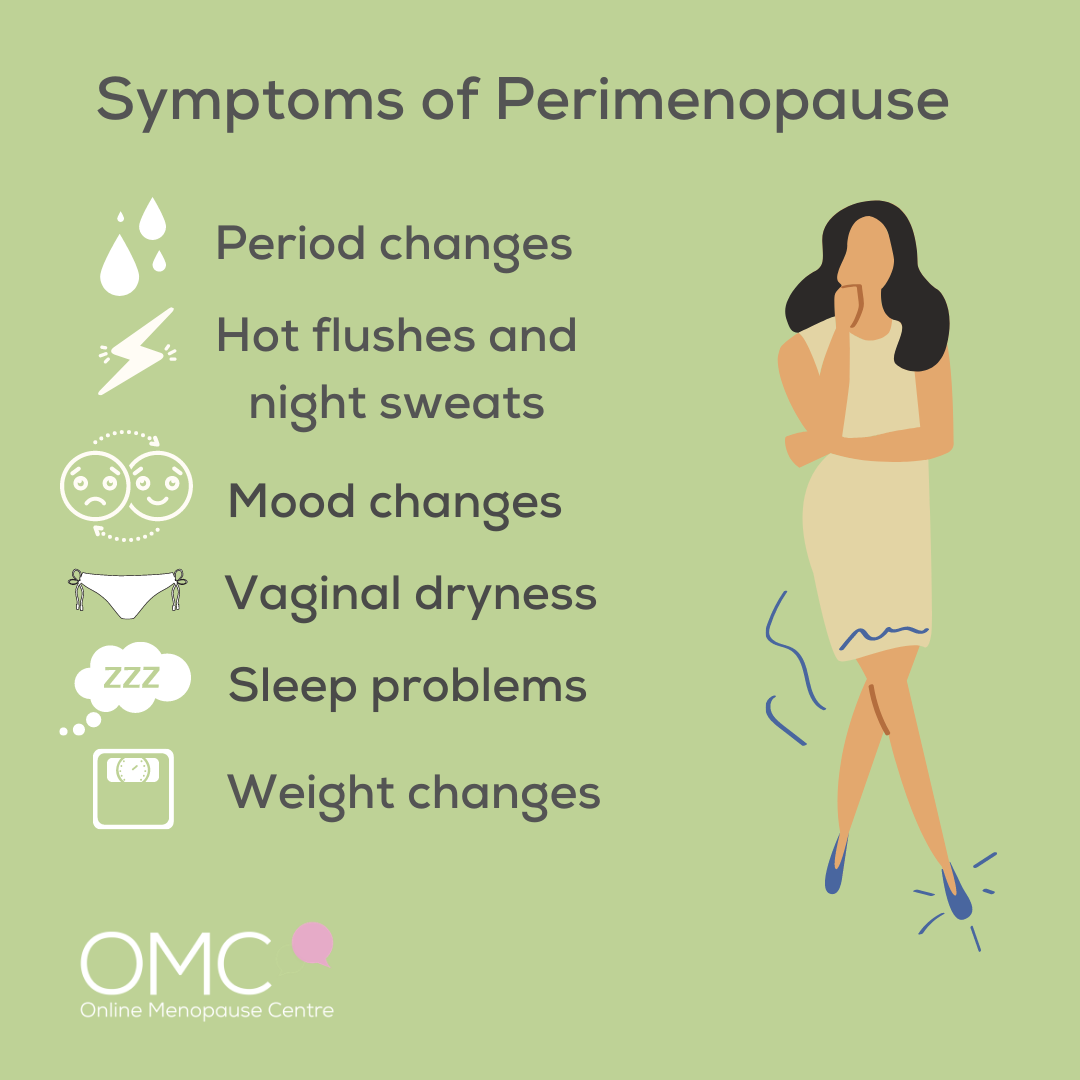Symptoms of Perimenopause

If you're experiencing symptoms of perimenopause, you're not alone. Perimenopause is a normal part of life and can be very difficult to detect without proper diagnosis. Your healthcare provider can help you identify your symptoms through your medical history, physical exam, and blood tests. Your diet should include lots of fruit and whole grains, and you should take at least 1,000 mg of calcium a day. You should also track what triggers your symptoms to find the best treatment.
Symptoms
Some of the symptoms of perimenopause can be managed with a few simple lifestyle changes. Wearing lighter clothes and dressing in layers may help reduce hot flashes and other uncomfortable symptoms. Also, avoid the foods and drinks that trigger these hot flashes. If these steps are not effective, you can seek treatment for your symptoms. Some of the available treatments include hormone replacement therapy (HRT), paroxetine (an anti-depressant), vaginal lubricants, and counseling.
Most women experiencing perimenopause also suffer from problems sleeping. Studies indicate that as much as 40% of perimenopausal women experience sleep problems, and while some studies have found a connection between night sweats and disturbed sleep, others have not. The reason for the lack of correlation is that sleep cycles are complex, and they change with age.
Treatments
Treatments for perimenopause may include a variety of lifestyle changes, herbal supplements, or prescription medication. While some of these treatments may be effective, others may cause side effects. If you want to avoid side effects, consult your physician before starting any treatment. For example, if you are experiencing frequent hot flashes or insomnia, an aerobic exercise regimen may be beneficial.
Perimenopause is known for its unpredictability, and symptoms can be mild to severe. Women experiencing these symptoms should seek medical care if they continue to experience irregular blood flow, insomnia, or hot flashes.
Timing
Perimenopause is a natural transition that affects the whole body. Your body's estrogen levels, hormone production, and protein levels all change, as does the timing of your menstrual cycle. Some perimenopause symptoms are temporary, while others last longer. However, some women report that their symptoms begin even before the menstrual cycle changes. Although this is possible, little research has been done on early perimenopause symptoms.
A healthy diet, regular exercise, and a reduction in stress may delay the onset of perimenopause and reduce the severity of symptoms. Some women also find that bioidentical hormones and supplements may help them manage the symptoms of perimenopause. Women may also need psychotherapy, cognitive behavioural therapy, and mindfulness training to help cope with the transition.
Causes
When women hit menopause, their reproductive ability declines. Their vaginal and urethral linings thin and become less elastic. This can lead to an increased risk for urinary tract infections. Women may also experience involuntary leaking of urine. If a woman is suffering from perimenopause, she may want to see her doctor. Her doctor may also suggest a blood test to determine estrogen levels and follicle stimulating hormone. She may also order a thyroid function test to rule out a thyroid problem.
Physical activity is another important way to improve your health and relieve symptoms of perimenopause. Exercise helps control your weight and improves your sleep. It also helps you reduce stress and improves mood. You should also eat a balanced diet, which includes plenty of fruit and vegetables and a little calcium per day.
Hormones involved
During the years leading up to menopause, a woman's body produces less estrogen and more progesterone. These two hormones are responsible for ovulation and menstruation. The changes in these hormone levels are the main cause of many women's complaints during perimenopause.
Other side effects of perimenopause can include weight gain, bowel changes, and migraines. Although the symptoms of perimenopause are not life-threatening, they can be difficult to cope with. As such, it is crucial that women pay attention to the symptoms and adjust their lifestyles accordingly.



